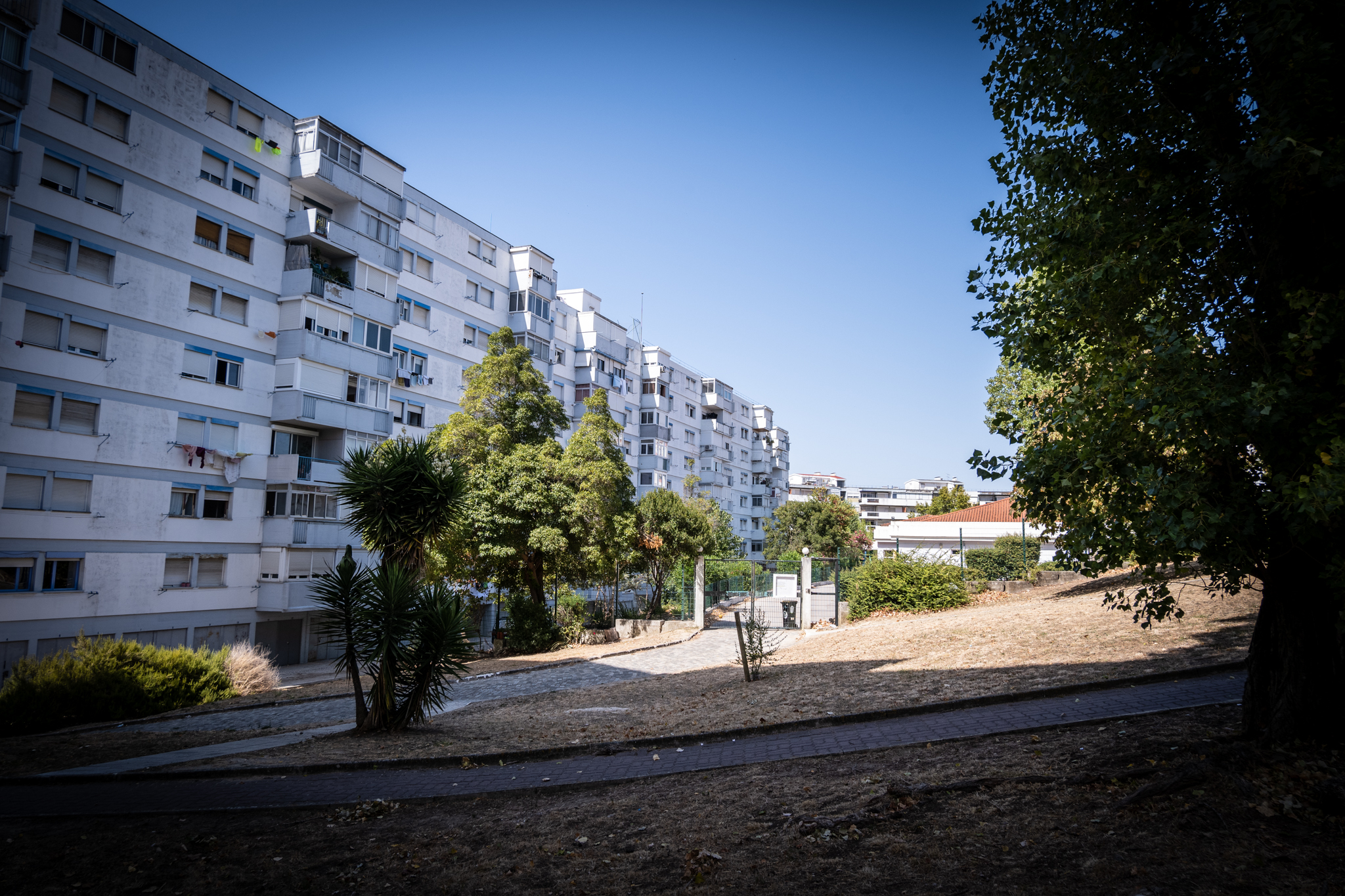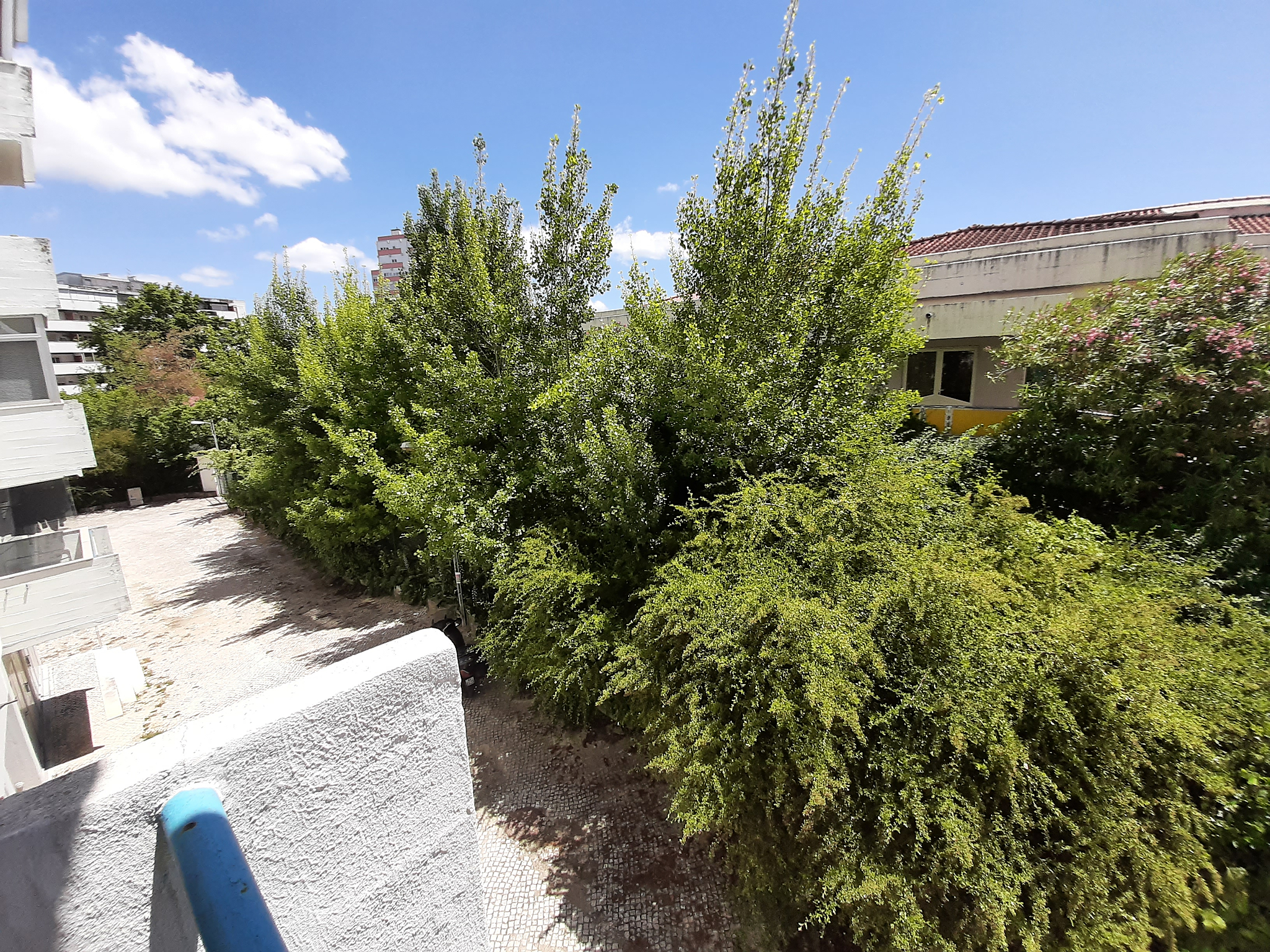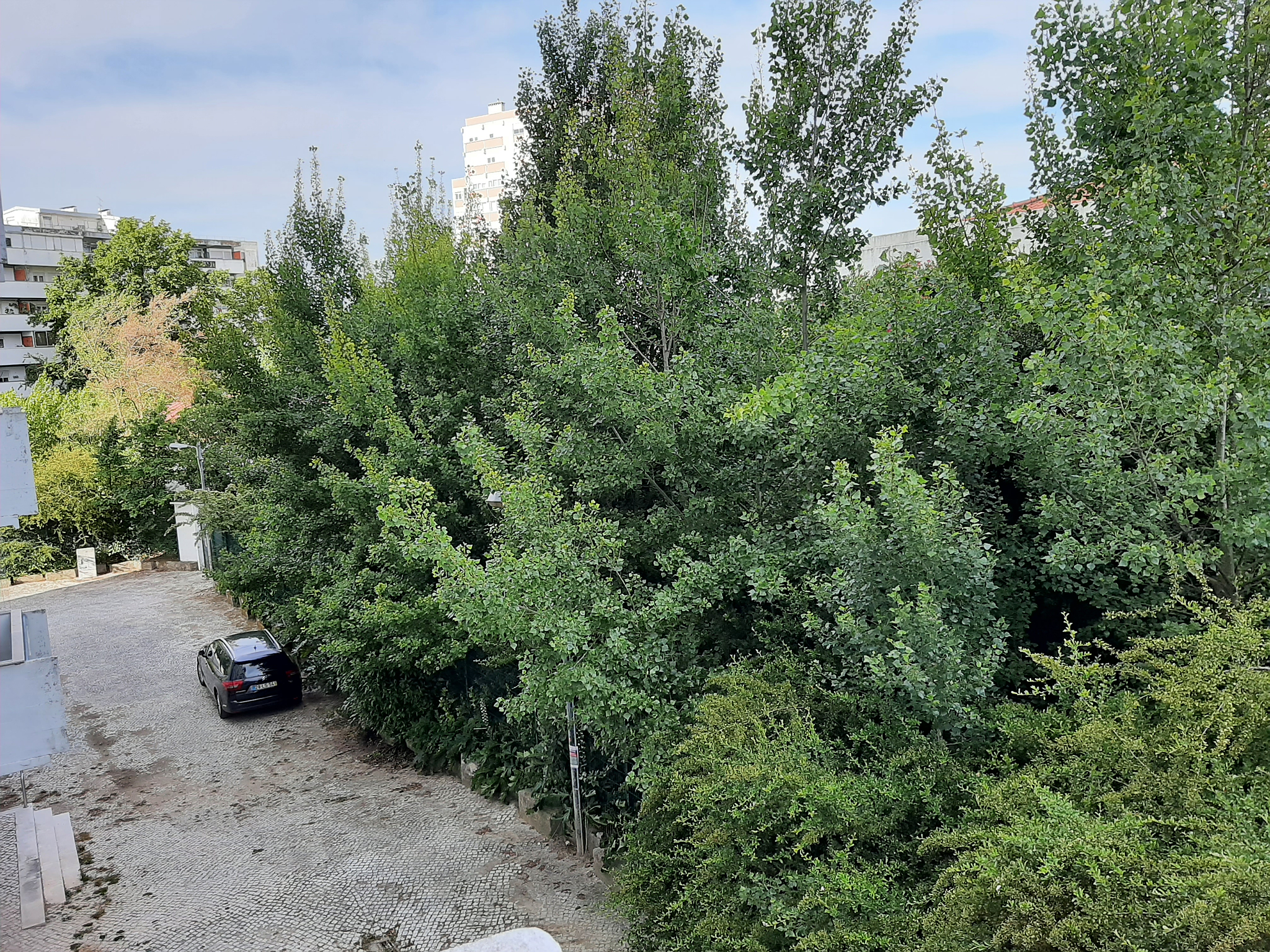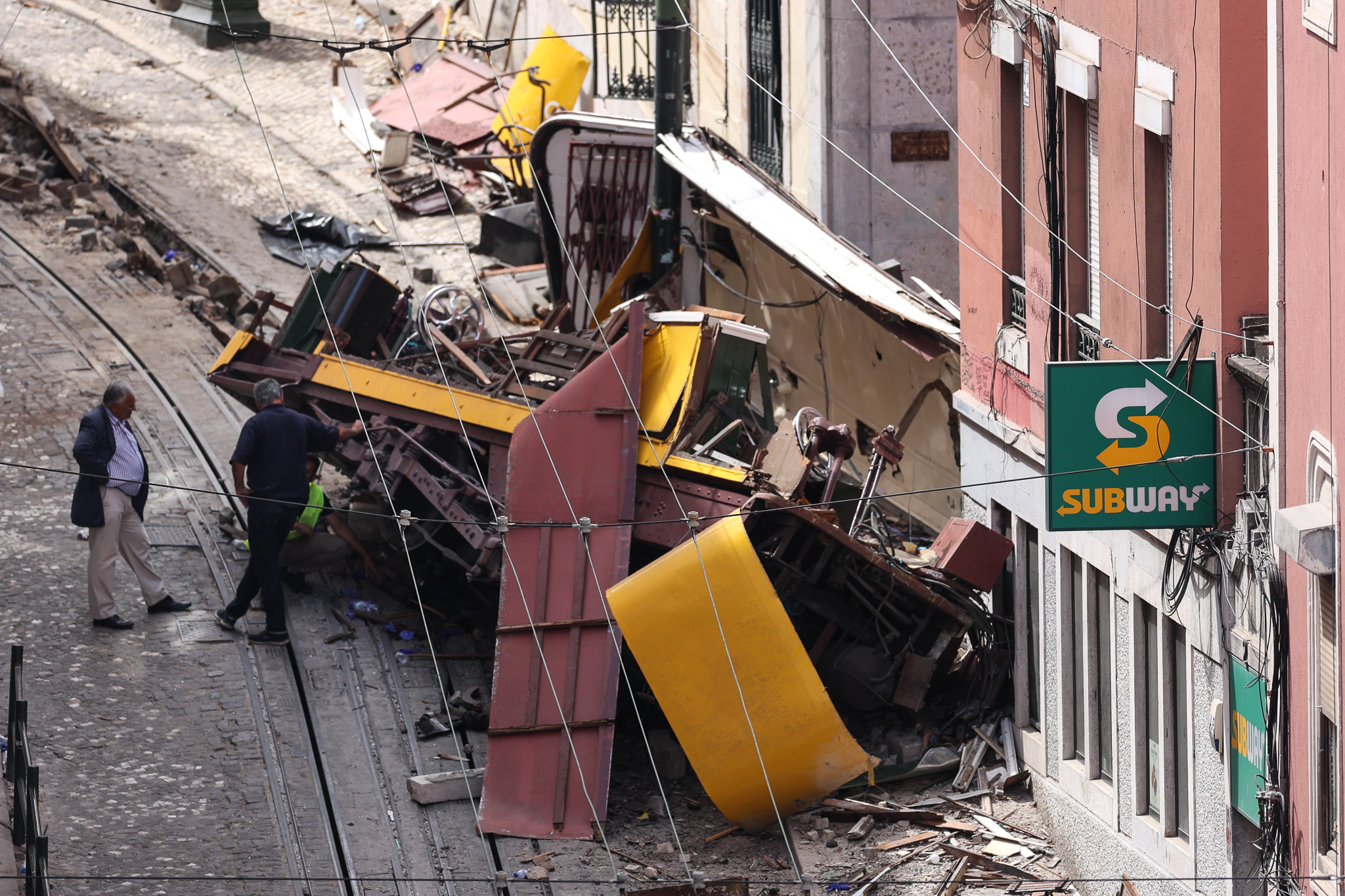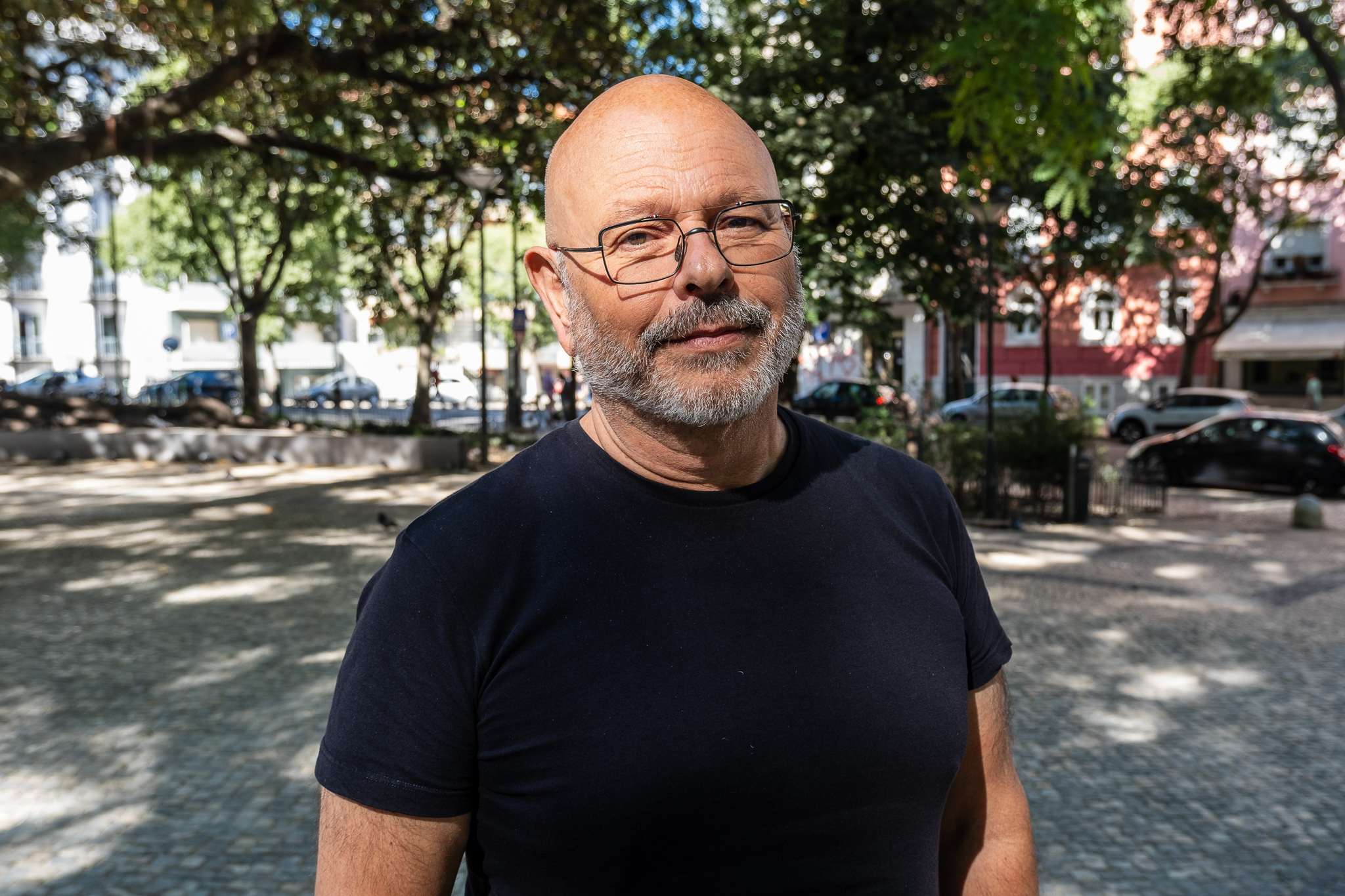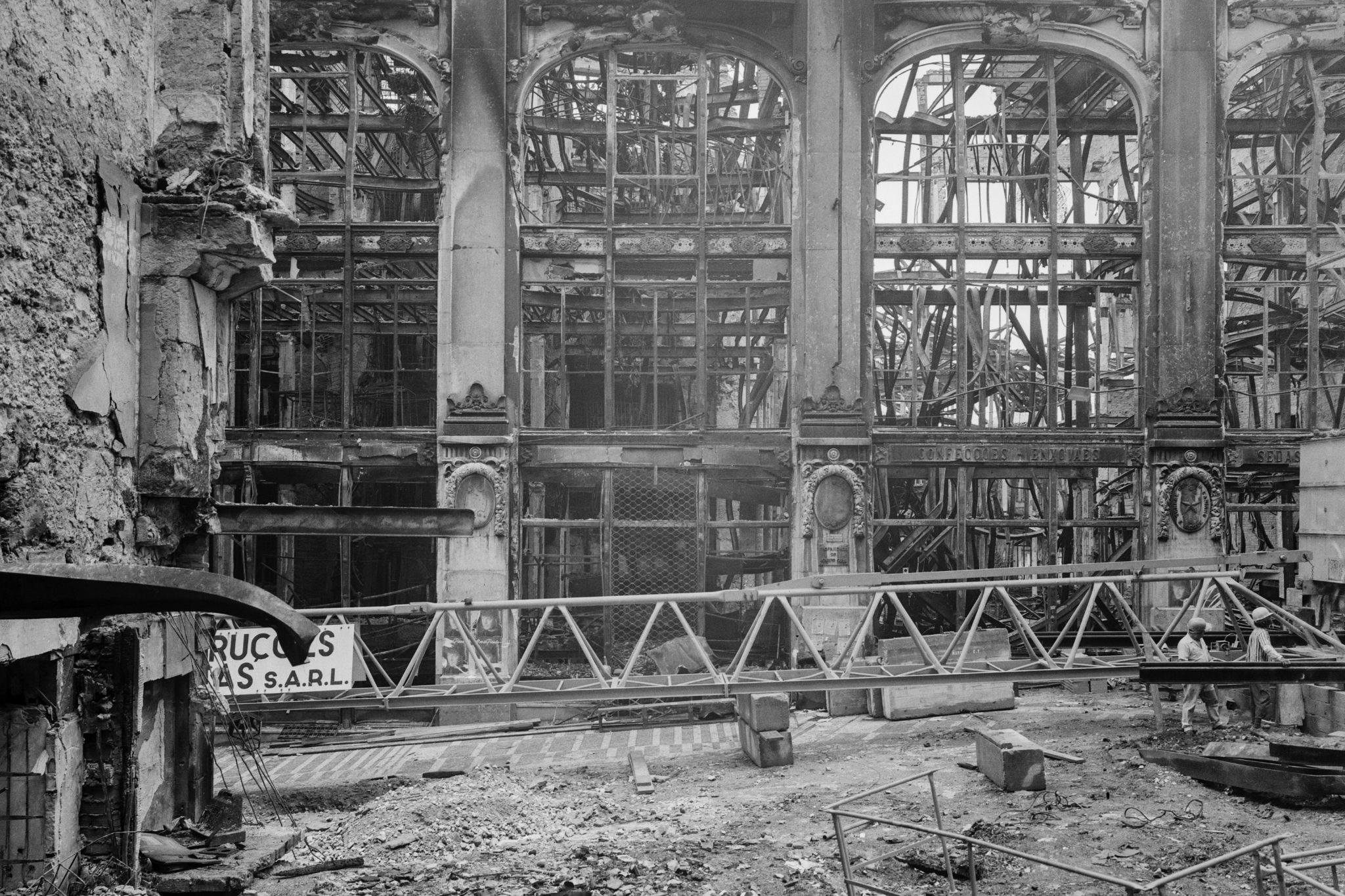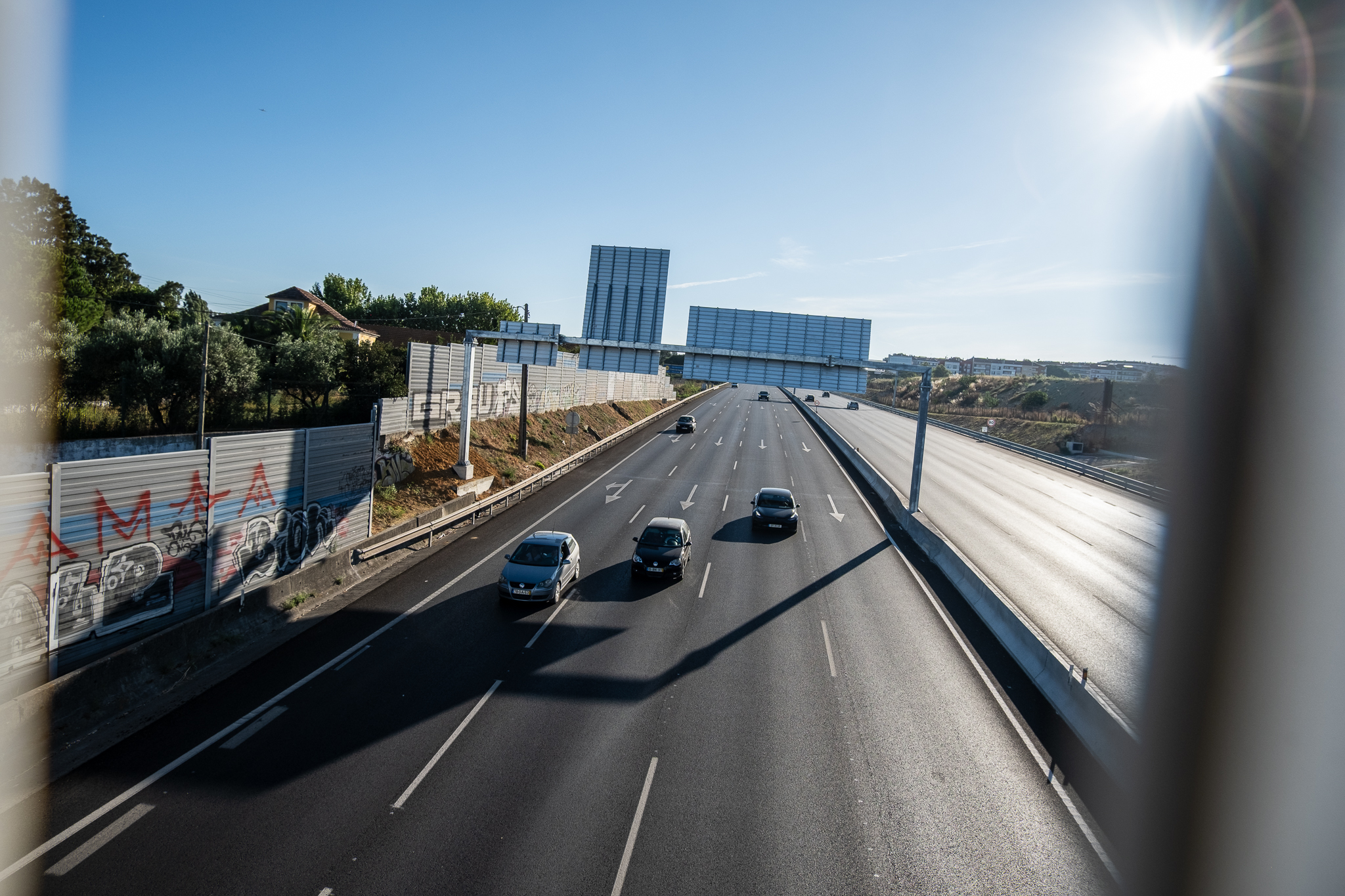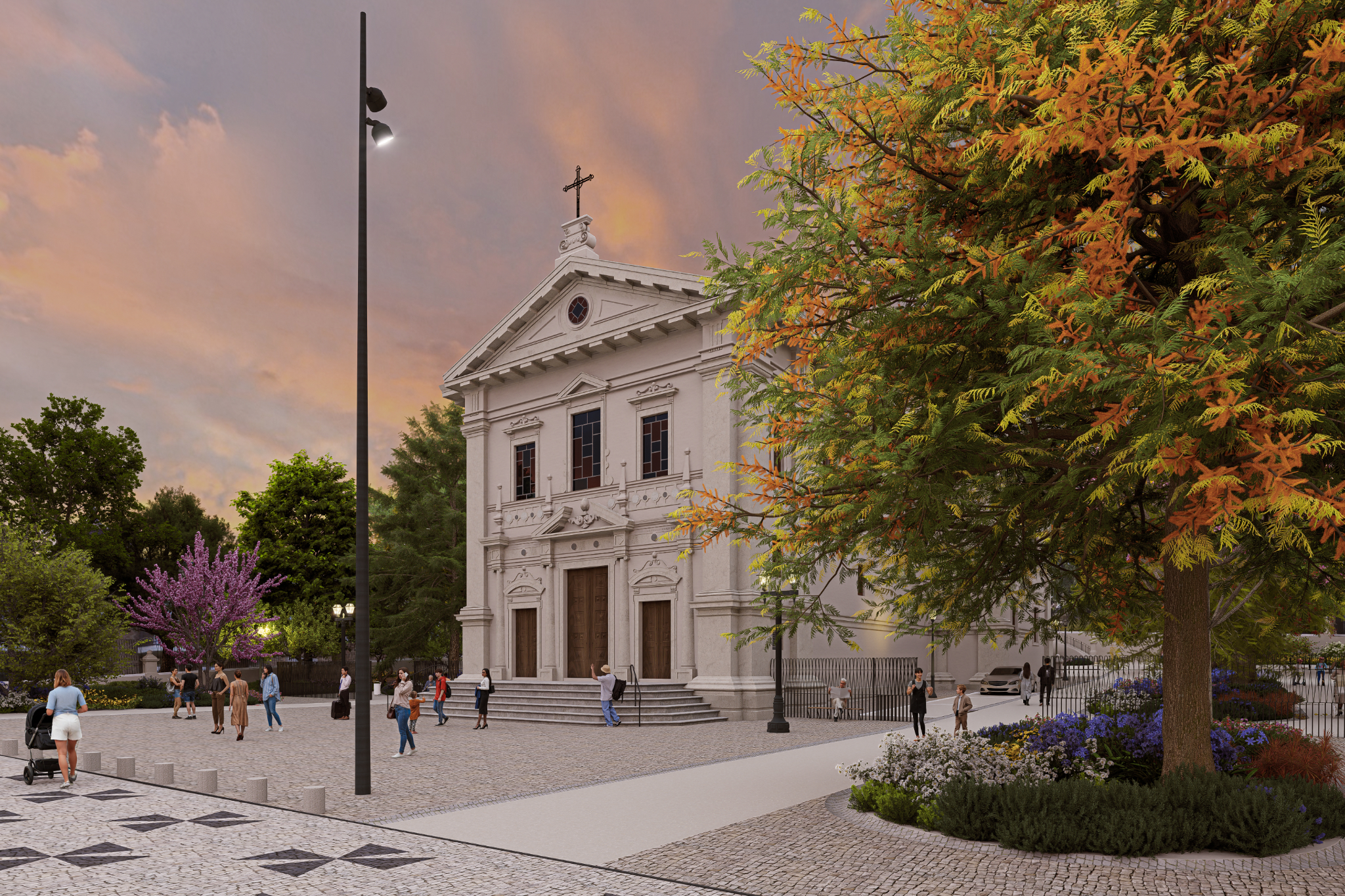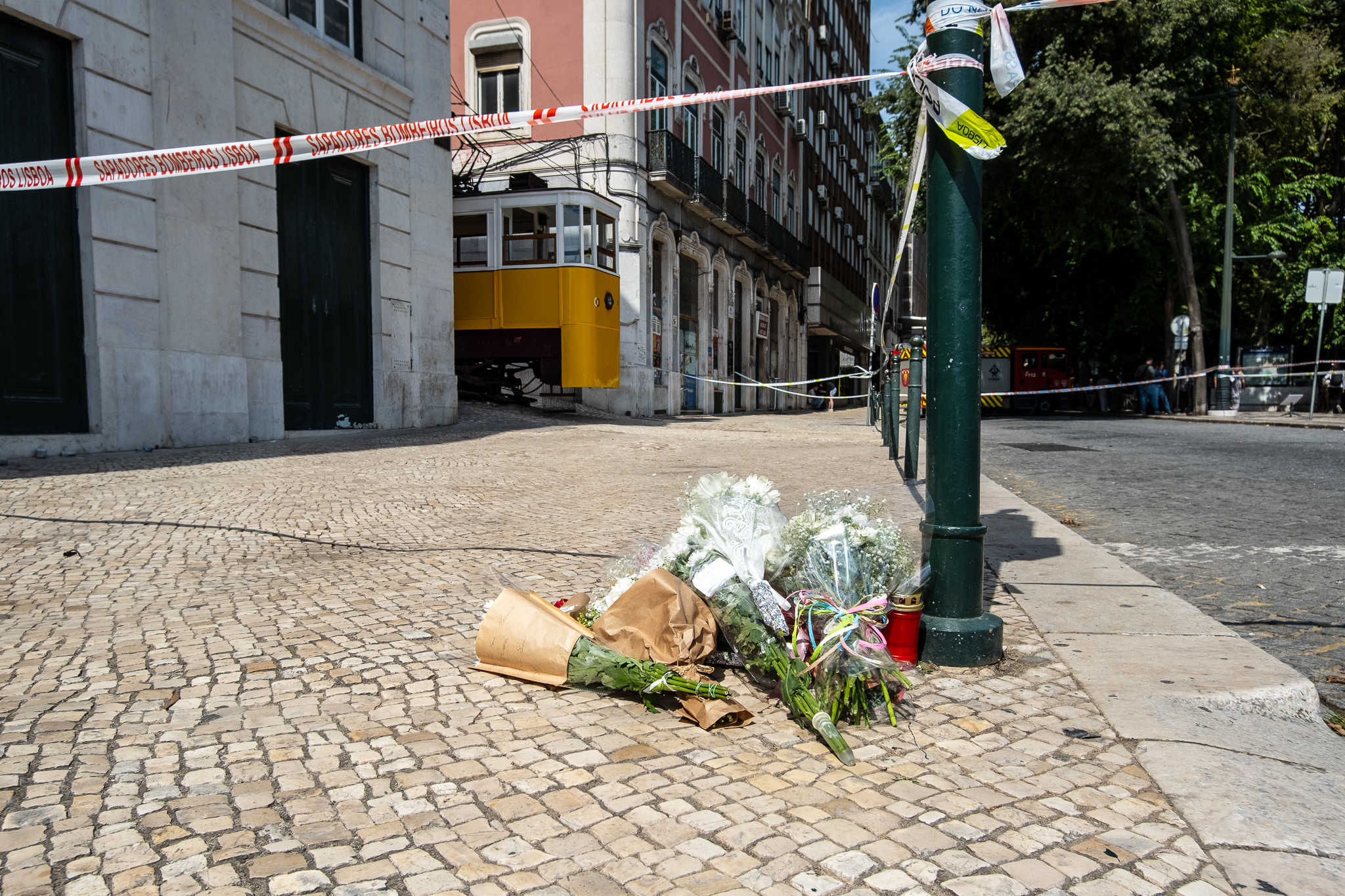What if the green but cluttered woods of this school were transformed into a mini-forest ready to host biodiversity and provide freshness to the neighbors?

The cold understanding of the city's public space as something that is the exclusive responsibility of the entities that govern the city is not at all consensual and, fortunately, many people are mobilizing to take care of their street, their neighbourhood, their city. It's informal volunteer work but, above all, of citizenship.
And while this community commitment is often supported by parish and town councils, in other situations they seem to put up obstacles or difficulties. But there are those who don't give up at the first difficulty. This is the story of four Olivais neighbors and their fight for a greener, fresher and more biodiverse neighborhood.
A dense forest that the Junta decided to clear
"When I bought my house, it was for the green of nature I had around me, which has now probably been halved. The house has become warmer, the birds have gone, the noise has increased." Rita is concerned about protecting nature. She lives in a building on Rua Cidade da Beira, in Olivais. From her house, she can see the Adriano Correia de Oliveira School and, until recently, she also had a view of the dense green forest that surrounded the school. Recent clearing work by the Olivais Parish Council (JFO) removed a substantial part of the vegetation. Rita and three other neighbors - Maria, Sílvia, Helena and Madalena - didn't understand why and tried to intervene with the tools of citizenship at their disposal. Because "clearing is not destroying".
A story begins to unfold on May 15thIt was a Saturday when a team from the JFO began clearing the woodland, just over a hectare in size, which surrounds the elementary school. A sign posted outside the school group informed passers-by of the "cleaning and removal operations" that would take place there "on Saturdays for an expected period of one month"with a view to "ensuring health in public spaces", "minimize conflict with school users and ensure safety conditions". After seeing the first works on the ground, the four residents organized themselves to contest the action.
In a petition, which had 74 signatures collected in two daysThe residents claimed that the land that was "to be deforested is the niche of a biodiversity that must be maintained, due to its precious contribution to the balance and fight against climate change". "We are living in a crucial time for the continuity of life on the planet. Every green is important"they added. They also showed their concern for the "well-being and life itself" of a colony of wild cats living in that area, as well as with "a whole generation of birds nesting there". They also said: "The vegetation that is being removed offers natural protection to the school and residents, providing privacy, shade and acting as a visual and sound barrier."
The Olivais Parish Council's clean-up operation was completed at the beginning of August. "The land has already been cleared (by their definition). They started on August 2nd, if I'm not mistaken. They came every day from the moment the school closed"explains Rita. Work will have been suspended for part of July "due to changes in JFO's environment and urban planning division"according to Maria.
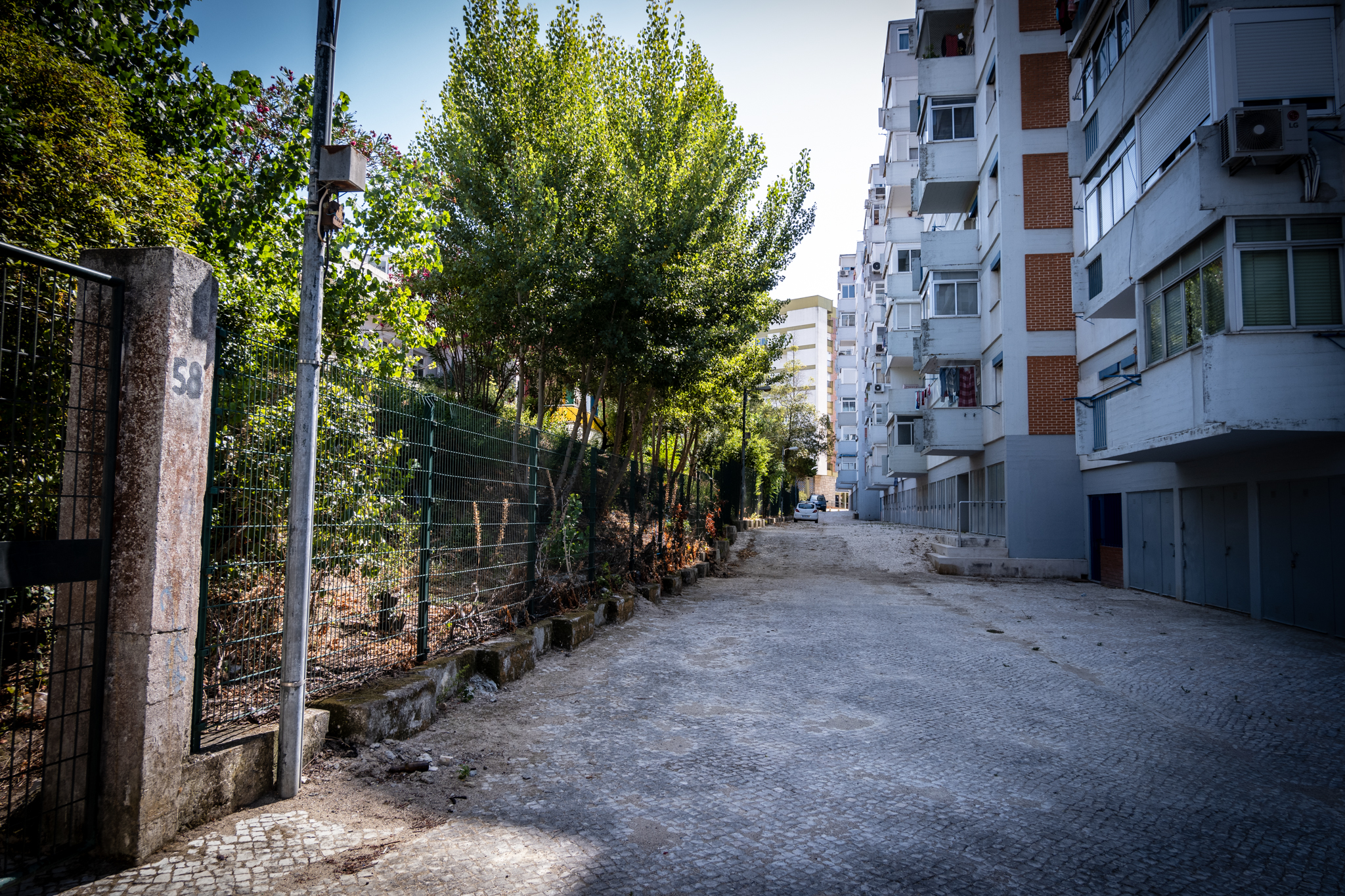
Dispute takes effect
The four residents' protest did not cancel the work, but it did lead to changes in strategy when the clean-up operation resumed in August. "A corridor of bushes has been preserved next to the fence"with interruptions every 10 meters, "to keep some shelter for the resident cats"says Maria. Now a retired graphic designer, Maria often takes care of the colony of cats that live there. She does this together with some of her neighbors, and it's common in the city for citizens to volunteer to feed and monitor the health of homeless animals. "In May, right after the first deforestation intervention, we lost two of the colony's youngest cats, one hit by a car and the other found dead on a landing outside a building", regrets."I urgently need shelters for cats. Nothing like human houses. Something simple with recycled material from Lisbon City Hall's deposits." Maria would like to install some shelters between the bushes so that the animals can protect themselves from the heat, cold and rain, but "it's a bureaucratic process to get the necessary authorizations".
With the reduction of the green mass, the four residents have noticed that the biodiversity of the site has been decreasing. "I stopped listening to the blackbirds that sang in the late afternoon and at dawn, a real long-distance communication that resulted in a charming serenade"says Maria. "There used to be a lot of blackbirds around here, including three that were maybe a couple of months old. Now they come around every now and then, as well as some smaller birds that don't come around much anymore either."Rita agrees. "Bees and butterflies have also disappeared"Sílvia adds. "On the day of the slaughter in front of my house there were four large ground spiders on the clothesline. And I live on the second floor! In other words, there are lots of little animals that we don't usually see but which have lost their "homes", their habitat. And wasps and flies began to appear.“
Rita, Maria, Sílvia, Helena and Madalena say that "what was predominantly green is now dry land, with the wind are clouds of dust and heat". "That's what they gave us"they lament almost in unison. They say they've lost the natural climate of the dense vegetation, gained hotter, drier days and colder nights, had more wind and with it "all kinds of waste, but mostly plastic"and that the noise has increased because "as the school is surrounded by tall buildings, there must be a reflection and amplification of the sound". They also claim that 89 trees were felled in 2017 "without any phytosanitary analysis, without a felling plan, without warning the surrounding residents, and there has been no replacement to date"as they also detail in the petition they delivered to the JFO in June.
A forest that needed upgrading
Rita and her neighbors didn't question the need to clean up the land, "left in the lurch for years". They only questioned the lack of concern for the preservation of plant and animal species, nor for the "observing whether or not there are nests in the bushes" who were "to be drastically pruned". In the petition, they asked for the work to be postponed until October, "recommended height for pruning and reforestation"and that in the meantime "a plan formulated by competent technicians on the cutting down of plant species and requalification of the space, which takes into account the well-being of plants, biodiversity, colony cats, school children and residents of the street". And they left a suggestion:
"That this green space, due to the sloping morphology of the ground and the fact that access is forbidden to children, be preserved as a forest space and biodiversity niche, considered the "school forest", serving as a visual and noise barrier between residents and the school, a natural air conditioner (humidity, temperature, shade) and air purifier, so necessary given the proximity of the 2ª Circular and Lisbon Airport. Protecting the existing colony of wild cats, our friends who fight pests such as rats and cockroaches, with the density of vegetation."
Between two meetings and several emails to put forward their point of view and ask for clarification, the four residents signed up to take part in the Ordinary Session of the Olivais Parish Assembly, which took place via videoconference on June 29 at 7pm. They prepared a three-minute video to be shown at the Assembly. However, on the same day, in the afternoon, they were informed that they wouldn't be able to attend because the JFA didn't have the resources to do so. "available technical means for the public to be able to attend Parish Assembly sessions", as can be read in an e-mail to which Lisboa Para Pessoas had access. "We know that this Ordinary Session of the Parish Council was held using Microsoft Teams. We know that our video was shown at the meeting, we know that the President, Rute Lima, took the time to respond to the issue. But we weren't there! We, who represented 74 signatures of protest against this clean-up action, were prevented from hearing the explanations given by the president, because we were not given the link to access the meeting, nor the authorization to enter it when our video was shown and discussed in the Assembly"they dispute.
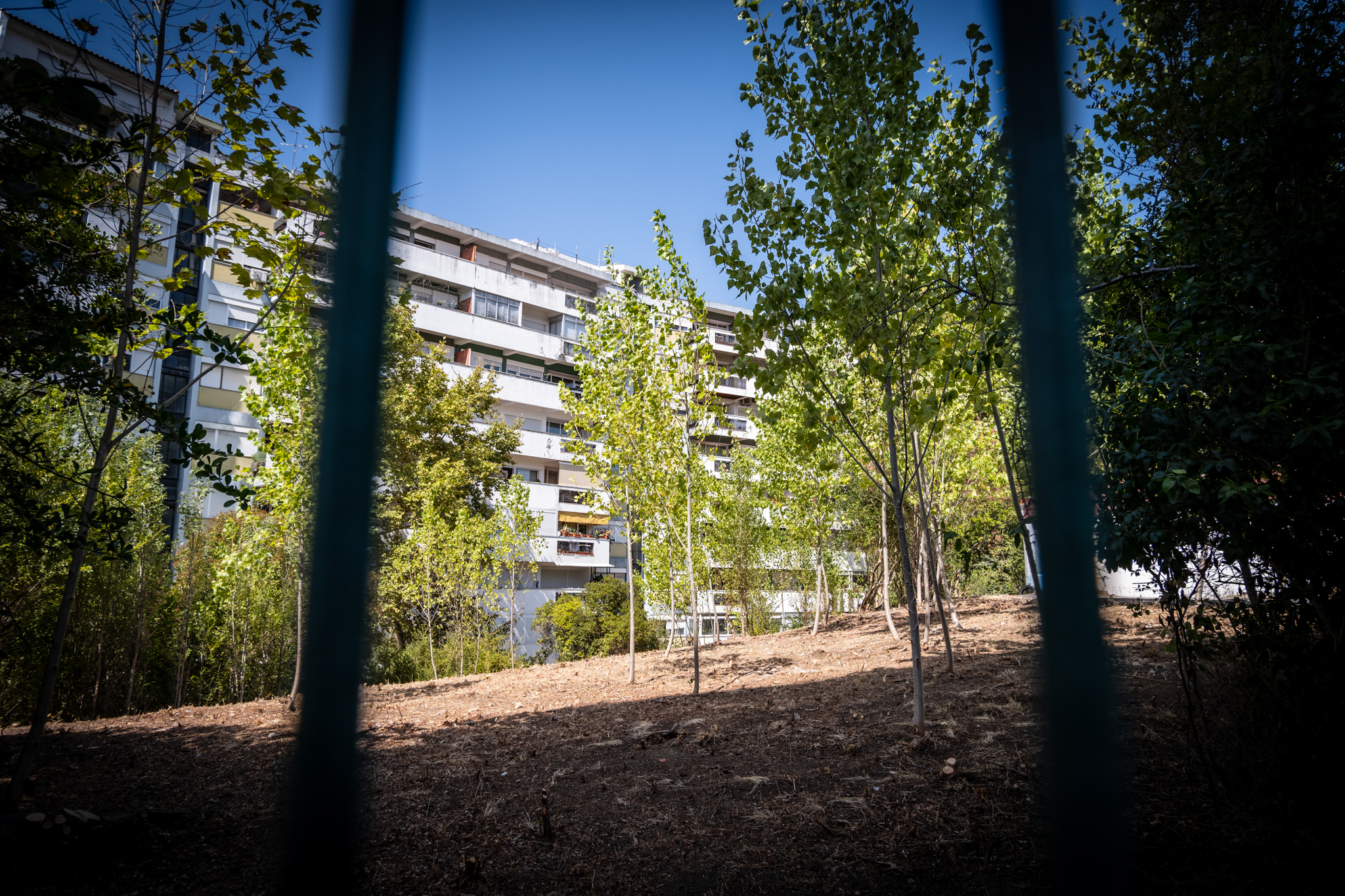
Rita, Maria, Silvia, Helena and Madalena are convinced that "our participation was barred on the basis of the lie that technical means were not available for the participation of the parishioners" and fear a "taking advantage of the pandemic and the new rules of participation to exclude the practice of citizenship and the free expression of citizens before the organs of power". Without being able to hear the JFO's response to the issue they had raised, even because "the website of the Olivais Parish Council is conspicuous by its lack of meeting minutes for the year 2021, or any video recording of them"They had to wait a week for the extract from the minutes relating to their speech to be sent to them.
The Junta's explanations
According to the document, which the four parishes shared with Lisboa Para Pessoas, the President of the JFO, Rute Lima, read out a response drafted by the technical services of the Junta de Freguesia and which could perhaps have been sent to the contestants in good time. First of all, it should be clarified that in 2017, not 89 adult trees were felled, but 38 specimens. "for having phytosanitary problems that compromised people and property". The technical services say that the forest was "consisting of a few species that exert a dominant and undesirable character"such as Acanthus Mollisclassified as an invasive species, the Nerium Oleandera poisonous plant, the Pyracantha, a species characterized by having several thorns, and shoots of PopulusThis is the result of a lot of damage to the slope, which invades the entire space of the slope, preventing the ecosystem from developing.
JFO says "the space was excessively dense, which prevented the preparation of a survey and an intervention plan for cleaning and requalification, which was only possible after the cleaning and removal interventions had been completed". The cleaning and removal operation began in May, "after the flowering period"and intended to "ensuring the balance of the ecosystem", in a land without "significant biodiversity, since the existing species pool is not diverse, and does not contribute to an increase in the diversity of fauna, birds and pollinating insects". "Nevertheless, the Parish Council has always opted for the preservation of all tree-sized elements"The reply was read out at the sitting.
The JFO guarantees that the cleaning work is just the first phase of a brief project to restore the school's woodland. The aim now is to "regular maintenance of space and ensuring the use of green space as recreational space, reconciling it with shelter for the cat colony and pollinating insects" and promote "integration of a variety of species that enhance birdlife and pollination, increasing biodiversity indexes". "There are plans to plant endogenous species that are adapted to the area for which they are intended, guaranteeing the balance of the ecosystem."
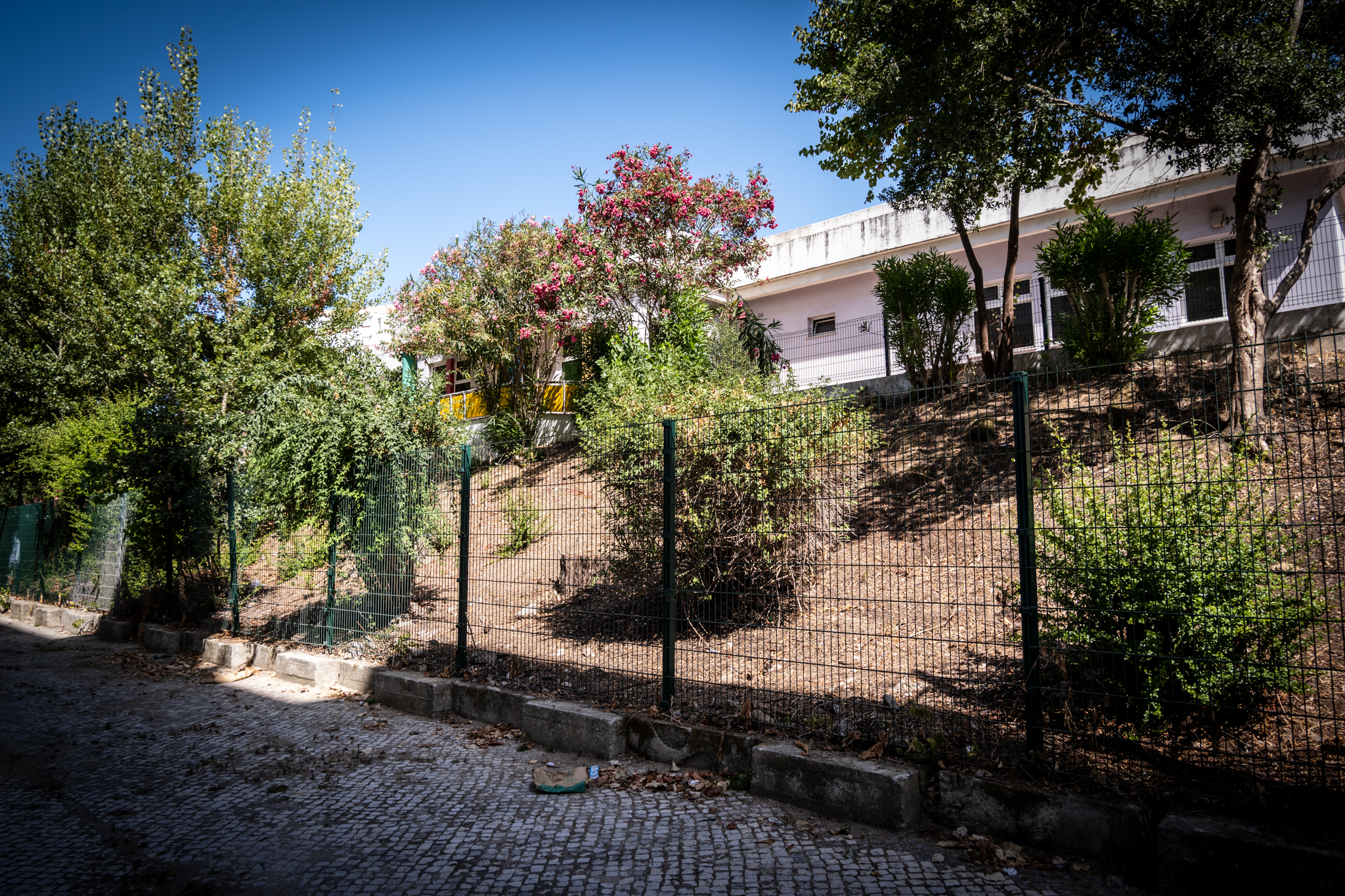
Rute Lima added that "citizens, like the parish council executive, must understand that a primary school must offer safety to the children, it must offer safety to the assistants and the teachers"and has photographic records of "mice, rats and other species of animals that could pose some kind of danger to the physical integrity of the school children". The President of the JFO was also surprised by the existence of a protocol between the residents and the Casa dos Animais de Lisboa (Lisbon Animal House) with a view to preserving the cat shelter on the school grounds. "under that same protocol, the facilities of a school under the responsibility of the Parish Council were being used, without the Parish Council's knowledge"mentioned. "I even assume that there may be citizens who have the key to enter the Adriano Correia de Oliveira School, without the Olivais Parish Council being aware of it, (...) and when we have, through some kind of expedient, access to public equipment that is managed by a certain entity, and that entity doesn't know about it, I assume that we may also be in the presence of a crime, which I don't think is very acceptable."
In a response sent to JFO in the meantime, the residents lamented "that no one, not even the President of the Board of the Assembly, has urged President Rute Lima to substantiate the insinuation and suspicion of a crime that she has leveled at us" and clarify that "the cats are fed through the bars of the school grounds where they find shelter in the dense vegetation"as "countless witnesses" can prove.
The email that the neighbors sent to JFO in response to what had been said at the Parish Assembly has gone unanswered as of the date of this article. We don't know if this almost novelistic story will end there, but let's hope not. The promised rehabilitation of the woods around the Adriano Correia de Oliveira School with new plant species that promote biodiversity, attract insects and provide protection for cats, should not be forgotten. In fact, a mini-forest could be created that would also function as a living laboratory for the school's students - similar to the project carried out at FCUL.
